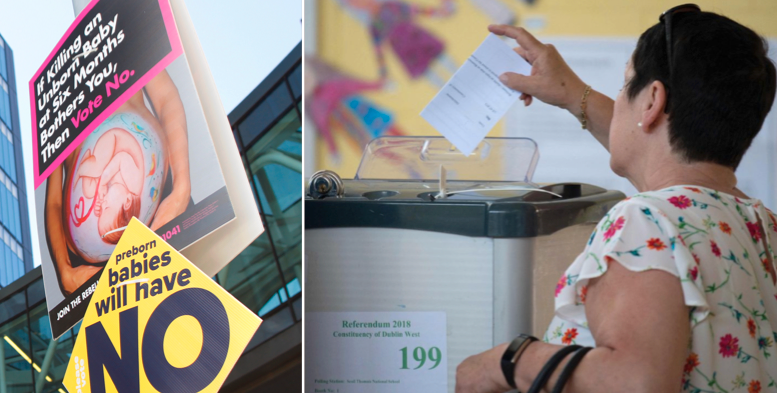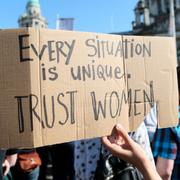
Motståndarna: ”Tillåter att bebisar dödas i vårt land”
I ett skarpt formulerat kampanjuttalande lovar abortmotståndarna på Irland att ta strid mot varje reform som ger större möjligheter för kvinnor i landet att utföra ingreppet. Man kommer bland annat att protestera om abortkliniker öppnar.
”Vad irländare gjorde i går är en tragedi av historiska proportioner”, skriver kampanjen och anklagar staten för att rättfärdiga mord på ofödda barn. ”Inom kort kommer en lag som tillåter att bebisar dödas i vårt land”.
Folkomröstningen handlade om det åttonde tillägget i den irländska grundlagen, som jämställer fostrets och kvinnans ”rätt till liv”. De som vill riva upp lagen till förmån för en mer liberal lagstiftning ser ut att ha vunnit en jordskredsseger.
– Det har begåtts så många övergrepp på kvinnor genom historien, men det är det slut med nu, säger ja-anhängaren Fiona Coyle till TT.



